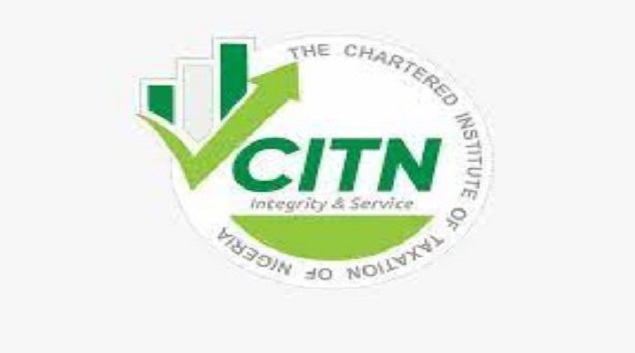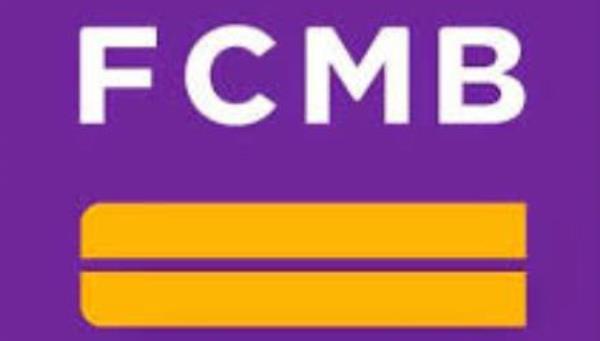E-Financial
NAICOM Considers N1trn GPI Benchmark for Q1

The National Insurance Commission (NAICOM) may consider the first quarter of this year to meet the N1 trillion Gross Premium Income (GPI) benchmark in the industry.

The commission, in collaboration with industry stakeholders, had planned to accomplish the benchmark before the end of 2023, from N729.1 billion but failed owing to the inflation rate and some other economic headwinds.
The commission is hopeful it would attract expressed optimism that according to progress reports of the sector in 2023, it is on track to attain the long- expected N1trillion GPI target and likely kick-off date for risk-based capitalisation (RBC) this year.
These came to the fore when the Insurers Committee in Lagos at their last meeting in 2023. In the meeting, it was also disclosed that the commencement of risk-based capitalisation depends on the completion of risk-based supervision in the industry.
Speaking on the RBS, the chairman of the publicity sub-committee of the Insurers Committee, Ebelechukwu Nwachukwu, said the significance of continuous improvement in risk-based supervision for the growth of the insurance industry and the implementation of risk-based pricing.
Nwachukwu noted that the committee’s transformation roadmap includes proposals for increased awareness, enhanced market conduct, insurer partnerships with telecommunications and non-insurance channels, digitalisation improvements and the deepening of the talent pool within the insurance sector.
In the same vein, Rasaq Salami, the Head of Corporate Communications and Market Development, NAICOM, assured industry players that the finalization of Risk-Based Supervision (RBS) is progressing, emphasizing the exhaustive nature of the exercise.
He clarified that the commencement of risk-based capitalization depends on the completion of RBS.
Also speaking on the outstanding claims in the industry, Salami said NAICOM has mandated the Nigerian Insurers Association (NIA) to publish details on outstanding claims in prominent newspapers.
This initiative, he said, aims to facilitate policyholders in claiming their settlements. The NIA is given a two-week timeline to execute the publication, with a three-month monitoring period to assess improvements. If progress is lacking after three months, regulatory action may be taken.
According to the report from the underwriting companies, some of these outstanding claims are not as if the companies are not ready to pay, but the policyholders of them have not come up with the appropriate documentation to conclude the process.
“The other improvement and the addition today is that the NIA has been mandated to do this publication within the next two weeks for the next three months, we will monitor and watch, take statistics of what has been done, if after three months there are no improvements then we take it up as the regulator, that is when we can now ask the insurance companies to go out there and do their publication,” he said.
Salami reaffirmed NAICOM’s resolve to the passage of the consolidated insurance bill, assuring that the industry is aligned in this regard.
He commended improvements in claims payment and highlighted ongoing digitalisation, the creation of new products, and increased engagement between operators and customers as signs of positive changes and dynamic insurance landscape.
E-Financial
CITN Tasks New Tax Professionals to Shape Fiscal Policies for Efficient Tax System

Mr. Samuel Agbeluyi, the President of the Chartered Institute of Taxation of Nigeria, has charged incoming tax professionals to see their roles as critical to shaping Nigeria’s fiscal policies and building a more efficient tax system.

Agbeluyi gave the charge on Tuesday at the opening of the April 2025 Pre-Induction Orientation Programme held in Abuja.
While addressing participants, the CITN President said the orientation marked not just a personal achievement for inductees but the beginning of a greater national responsibility.
According to him, “Ultimately, it is expected that at the end of this programme and the induction thereafter, the number of tax professionals in the roll call of the CITN and indeed Nigeria would grow.
“Most importantly, more professionals would be added to the struggle of building an efficient and effective tax system in Nigeria, whilst influencing government fiscal policies and adding immense value to various stakeholders.”
Agbeluyi stated that the institute’s charter empowers it to determine the standard of knowledge and skills required to become a professional in the field, adding that the training was a deliberate step towards producing competent tax administrators capable of delivering value in the Nigerian economy.
He also noted that facilitators had been carefully selected from among experienced tax professionals and administrators to guide inductees using practical scenarios.
In her remarks, the Deputy Director of the CITN Tax Academy, Mrs Yetunde Suleiman, said the training was designed to expose participants to key developments in national and international tax administration, as well as emerging issues in the digital economy.
She noted that taxation remained central to Nigeria’s economic development and urged the inductees to take their training seriously in light of growing challenges in the country’s tax system, such as evasion, ambiguity of laws and high compliance costs.
Suleiman said, “There is a continuous need to produce, train and unleash qualified tax professionals to tackle these hydra-headed tax challenges.”
She urged participants to approach the sessions with enthusiasm, noting that the knowledge acquired would prepare them to become ambassadors of the institute and sound professionals equipped to drive reform in the tax space.
E-Financial
FCMB Capital Markets Leads ₦11.85bn GLNG Bond for LNG Plant Expansion

FCMB Capital Markets Ltd. successfully led the issuance of GLNG Funding SPV Plc’s ₦11.85 billion 10-Year Series 2 Senior Guaranteed Fixed Rate Infrastructure Bond, which closed in February. This milestone underscores investor confidence in Nigeria’s clean energy transition.

The bond, issued by GLNG Funding SPV Plc and sponsored by Green Liquified Natural Gas (GLNG) as part of its capital-raising plans, is a key step in financing the construction of a mini-LNG plant with a liquefaction capacity of 200,000 standard cubic meters of gas per day.
The facility will help bridge Nigeria’s power supply gap and offer industries a cleaner, cost-effective alternative to diesel.
The issuance was backed by InfraCredit, an AAA-rated infrastructure credit guarantee firm, and is expected to generate over 500 direct and 2,000 indirect jobs, supporting Nigeria’s sustainable economic growth.
“FCMB Capital Markets remains committed to financing projects that drive clean energy adoption and long-term economic impact,” said Ikechukwu Omeruah, Managing Director, FCMB Capital Markets Limited.
“We appreciate the trust placed in us by GLNG and the invaluable role played by InfraCredit and investors in enabling the successful conclusion of this transaction.”
As gas adoption accelerates in Nigeria, a 2022 Clarke Energy report estimates that manufacturers could save up to 30% by switching to gas from the grid and as much as 80% compared to diesel.
FCMB Capital Markets, a part of FCMB Group, has been instrumental in raising over ₦3 trillion in debt and equity capital for leading corporate organizations in Nigeria over the past five years, reinforcing its position as a key player in the country’s capital markets.
E-Financial
How Nigerian Banks Earned N14.26 Trillion in Interest Income in 2024

Nine leading Nigerian banks collectively generated N14.26 trillion in interest income in 2024, reflecting a 119.55% increase from N6.49 trillion in 2023.

This surge is attributed to the Central Bank of Nigeria’s Monetary Policy Committee raising benchmark interest rates to combat inflation, which reached 34.80% by the end of the year.
Among the banks, Zenith Bank recorded the highest actual income increase, while First Holdco led in percentage growth. Access Holdings, UBA, GTCO, Stanbic IBTC, FCMB Group, Fidelity Bank, and Wema Bank also reported significant gains.
However, a portion of this income was derived from non-performing loans, raising concerns about the sustainability of these earnings.
In contrast, the manufacturing sector faced operational costs of N2.5 trillion, with high interest and energy expenses straining growth. Industry leaders have called for a halt to further rate hikes, warning of potential risks to the real sector’s recovery.
This financial dynamic underscores the contrasting fortunes of Nigeria’s banking and manufacturing sectors. What are your thoughts on these developments?

 Telecom2 days ago
Telecom2 days agoDigital Transformation Remains Africa’s Gateway to Economic Advancement – Adumike

 Telecom2 days ago
Telecom2 days agoPAFON 2.0: Experts Discuss Pathways to Boost Financial Inclusion in Nigeria

 General News2 days ago
General News2 days agoEFCC Clarifies SCUML Certificate Misuse amid CBEX Ponzi Scheme Scandal

 E-Financial2 days ago
E-Financial2 days agoCBN, NGX Group Defend Economic Reforms at Nasdaq

 Telecom1 day ago
Telecom1 day agoMTN Nigeria Faces Class Action Lawsuit over Alleged Data Mismanagement

 Telecom1 day ago
Telecom1 day agoNigeria Hits 1 Terabit Internet Traffic Milestone

 General News1 day ago
General News1 day agoFG to Introduce New Tax Credit Scheme to Replace Pioneer Status Incentive

 E-Financial1 day ago
E-Financial1 day agoFCMB Capital Markets Leads ₦11.85bn GLNG Bond for LNG Plant Expansion























